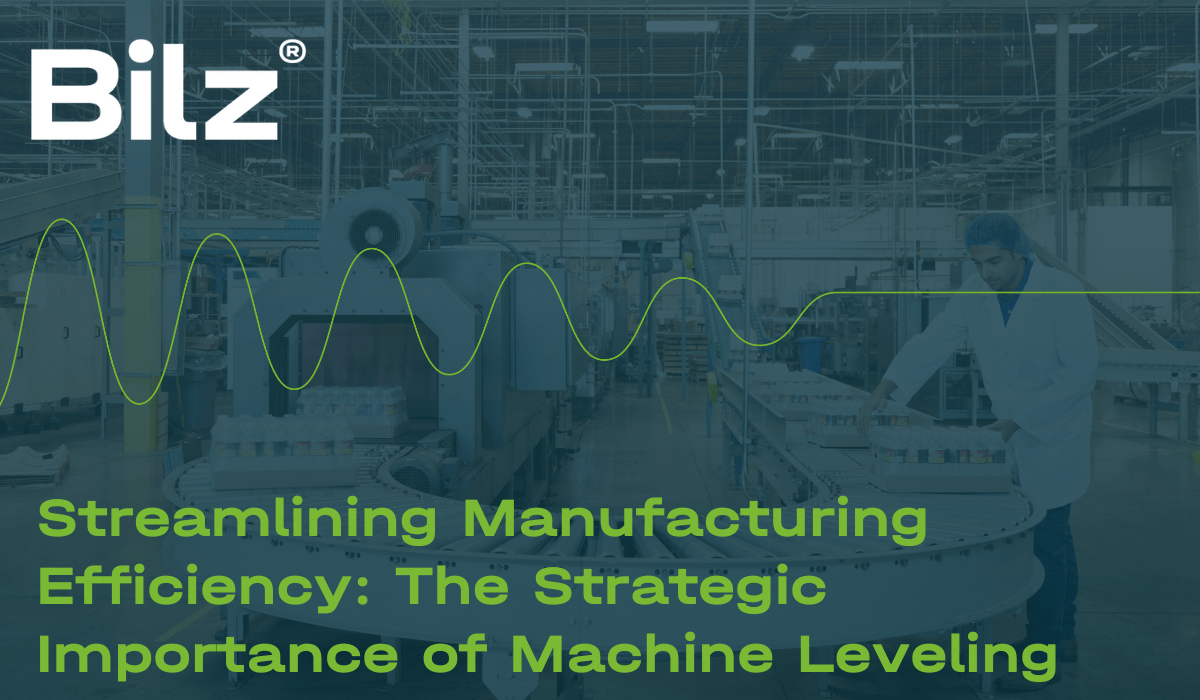

In the pursuit of manufacturing excellence, efficiency and productivity stand as paramount goals for industrial operations. A key, yet often underestimated, factor in achieving these goals is the strategic importance of machine leveling. Proper machine leveling goes beyond merely setting up equipment; it lays the foundation for streamlined operations, high-quality output, and minimized downtime. This blog post delves into how machine leveling plays a crucial role in enhancing manufacturing efficiency and why it should be a strategic priority for manufacturers.
Properly leveled machines operate with minimal stress on their components, leading to reduced wear and tear. This not only extends the lifespan of the equipment but also maintains optimal performance levels, reducing the frequency and cost of repairs.
Precision in production is directly influenced by machine stability, which is ensured through accurate leveling. This stability is critical for operations requiring high precision, such as CNC machining or injection molding, where even minor deviations can lead to significant product defects. By ensuring machines are perfectly leveled, manufacturers can achieve consistent product quality, thereby increasing customer satisfaction and reducing waste.
Machine leveling is a proactive measure that can significantly reduce unexpected downtime. Properly leveled equipment is less likely to experience malfunctions and breakdowns, ensuring continuous production flow. Furthermore, in the event of maintenance or repairs, leveled machines can be more easily and quickly serviced, further minimizing downtime.
Regular maintenance is essential for the longevity and efficiency of manufacturing equipment. Machine leveling simplifies this process by preventing uneven wear and making it easier to diagnose and address potential issues. This preventative approach to maintenance supports a more efficient use of resources and reduces the likelihood of emergency repairs.
The need for manufacturing flexibility has never been greater, with market demands driving the need for quick production line reconfigurations. Machine leveling plays a vital role in this agility, allowing for quicker and more efficient equipment adjustments and changes. Properly leveled machines can be more easily moved, repositioned, and recalibrated, supporting a more responsive manufacturing environment.
Operational efficiency is not just about speed and output; it also encompasses the safety of the working environment. Properly leveled machines are more stable and less prone to accidents and malfunctions, ensuring a safer workplace. This safety aspect not only protects employees but also avoids production halts due to accidents, contributing to overall operational efficiency.
To fully capitalize on the benefits of machine leveling, manufacturers should consider the following steps:
Machine leveling is a critical yet often overlooked component of manufacturing efficiency. By recognizing its strategic importance and integrating leveling practices into operational planning, manufacturers can enhance machine performance, product quality, and operational agility. Ultimately, machine leveling is not just about maintaining equipment; it's about empowering the entire manufacturing process to achieve higher levels of efficiency and productivity.